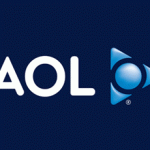 Washington — Since long, promoters of Net Neutrality, encountered innumerable hurdles when trying to sniff out problems: Is your Internet service provider meddling with your network traffic, and possibly even violating of Net neutrality principles? Well, the father of the Internet Vint Cerf, Google’s chief Internet evangelist on Wednesday along with the New America Foundation’s Open Technology Institute, the PlanetLab Consortium, and various academic researchers, announced the opening of Measurement Lab, an open research platform aimed at eventually letting computer users determine whether providers like Comcast Corp are inappropriately blocking or slowing their work online.
Washington — Since long, promoters of Net Neutrality, encountered innumerable hurdles when trying to sniff out problems: Is your Internet service provider meddling with your network traffic, and possibly even violating of Net neutrality principles? Well, the father of the Internet Vint Cerf, Google’s chief Internet evangelist on Wednesday along with the New America Foundation’s Open Technology Institute, the PlanetLab Consortium, and various academic researchers, announced the opening of Measurement Lab, an open research platform aimed at eventually letting computer users determine whether providers like Comcast Corp are inappropriately blocking or slowing their work online.
Vint Cerf himself puts out the word through a post on the Official Google Blog that Google’s Measurement Lab will make it more difficult for telecoms to degrade or block apps such as BitTorrent or Skype. Along with Stephen Stuart, he described Measurement Lab as “an open platform that researchers can use to deploy Internet measurement tools.” And particularly more so, the tools will “evaluate the speed of their connection, run diagnostics, and attempt to discern if their ISP is blocking or throttling particular applications.”
The scheme behind the so-called Measurement Lab, or M-Lab, is that just about whosoever is interested in Internet regulation — including consumers, regulators, and content providers — could use more details about their network-diagnostic information to identify network performance degradation. It also aspires to make such information easier to share.
“At Google, we sincerely care about supporting the Internet as an open platform for consumer choice and innovation,” said Cerf and Google engineer Stuart in a co-authored blog post. “No matter your views on net neutrality and ISP network management practices, everyone can agree that Internet users deserve to be well-informed about what they are getting when they sign up for broadband, and good data is the bedrock of sound policy. Transparency has always been crucial to the success of the Internet, and, by advancing network research in this area; M-Lab aims to help sustain a healthy, innovative Internet.”
Measurement Lab is designed to assist researchers look into Internet traffic patterns with the idea of being able to figure out when broadband providers are degrading or blocking data.
“When your connection seems flaky, how do you know what the problem is? Is the network, the software or is your PC on the fritz? We want to give users a sense of what is happening,” said Derek Slater, a Google policy analyst.
The testing tools are mostly geared for use by researchers, not consumers, although two of the applications on the site could be somewhat useful to residential Internet users. The “Network Diagnostic Tool” will help measure the speed of your Internet connection (although the rest of the data it provides can be somewhat baffling). The “Glasnost” application can also help users figure out if their Internet providers are slowing or blocking BitTorrent traffic.
Google’s participation should get M-Lab (which is, of course, in beta) off to a fast start as it will provide academic researchers with 36 servers in 12 locations across the United States and Europe to analyze data, said its chief Internet guru, Cerf, known as the “father of the Internet.”
From there, other companies and individuals may join on, helping to build a solid picture of the worldwide state of broadband communications. The effort is intended to expose the problem for users, Cerf said. Cerf is widely known for his work for the U.S. government in designing the Internet protocol in the 1970s and 1980s.
Measurement Lab was launched in 2008 in association of academics, Google Inc., the Democratic Party-affiliated New America Foundation, and the (partially Google-funded) PlanetLab Consortium (a university business group devoted to next-generation networks).
“This is not just a Google project. We want this to be a community effort,” Slater said.
Google is not the only organization to offer a network neutrality test. Others such as the Electronic Frontier Foundation’s Switzerland project have offered similar tests.
However, when Internet luminaries like Tim Berners-Lee, who is not affiliated with Google, argue that net neutrality “is basis of a fair, competitive market economy” and “is the basis of democracy,” it becomes clear that network neutrality foes face an uphill battle.
Company officials look forward to broaden the effort to include other university researchers and Internet service providers as well.


